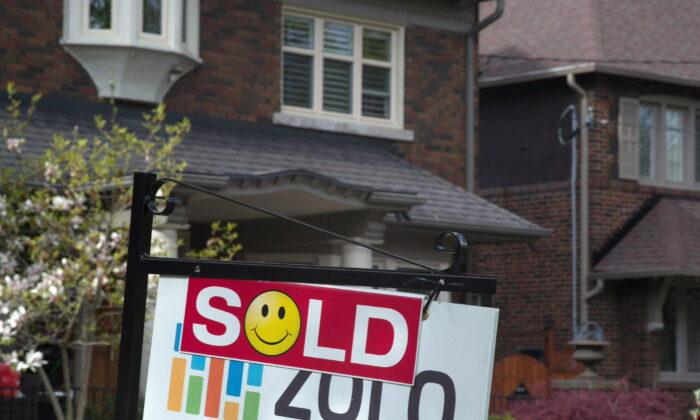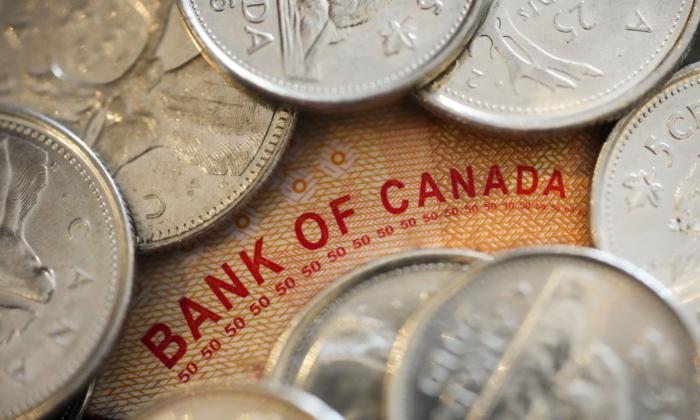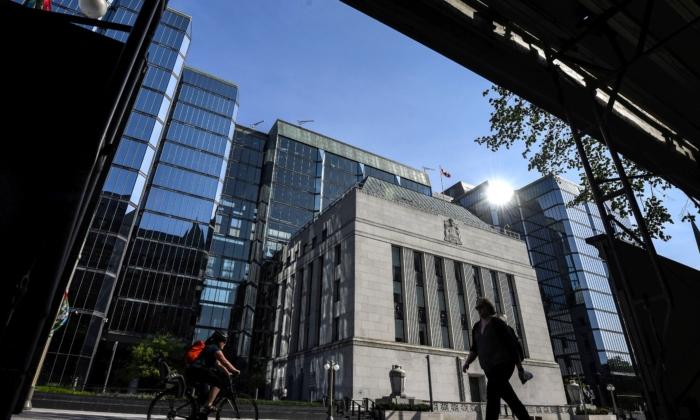Canada’s red-hot housing market is once again drawing calls for actions to cool it off lest the “bubble” bursts and creates grief across the economy. But given the extraordinary federal pandemic support and the Bank of Canada lowering interest rates to near zero to prevent a deep recession, a worrisome rise in house prices driven by a surge in demand was widely predicted.
The number one problem plaguing the housing market from a long-term perspective is inadequate supply to meet the demand, says Benjamin Tal, CIBC’s deputy chief economist.
“The reality is … we’re fighting supply issues with demand tools,” Tal told The Epoch Times, adding that some of the measures being discussed can only affect the dynamic at the margin.
In the short term, the most promising tool for cooling the frenzy, he says, is the mortgage stress test for uninsured mortgages—where the down payment is more than 20 percent. He’s not pushing policy-makers for additional measures, such as taxing capital gains for speculative investment, as some others are suggesting.
One problem with introducing new regulations, Tal said, is that it could be harder to remove them at a later date.
And if any new measures were to be introduced, they’d be dampening what he sees as a somewhat temporary situation, where historically low interest rates, which people are desperate to take advantage of, are pulling future demand into the present.
“In many ways, we are borrowing activity from the future,” he said.
Tal hinted at a natural cooling off once this phenomenon eventually runs out.
Stress Test Tweaked
An additional worry for policy-makers in times of rapidly increasing home prices and sales is speculative investment—a phenomenon that isn’t as much of a concern today as it was in 2016–17.
Former Bank of Canada governor Stephen Poloz said in a March 18 interview with BNN Bloomberg that the side effect of a hot housing market is an acceptable trade-off to prevent greater economic damage during the pandemic.
He said there could be signs of speculation but “we have to accept that because otherwise we would have a really, really bad recession.”
A slew of measures were introduced in late 2016 and early 2017, mainly to cool markets in Toronto and Vancouver, such as foreign buyers taxes, speculation and vacancy taxes, and Ontario’s Fair Housing Plan.
But when the Office of the Superintendent of Financial Institutions (OSFI) introduced the mortgage stress test in 2018 for uninsured borrowers, industry professionals deemed it the most potent measure for slowing hot markets in Toronto and Vancouver. They also criticized the test for being too rigid and punitive since it did not react to changing market conditions.
The stress test requires uninsured borrowers to qualify at the BoC’s five-year conventional mortgage rate or a rate equal to their mortgage contract rate plus 2 percent, whichever is higher.
Now, OSFI is proposing to change that qualifying rate to 5.25 percent or the borrowers’ mortgage contract rate plus 2 percent, whichever is higher. The 5.25 percent minimum qualifying rate is an increase from the BoC’s current 4.79 percent five-year rate. But another notable change is to revisit the parameters of the test at least once a year to ensure it remains suitable for the environment.
Tal said the most important development coming from the federal banking regulator regarding the revised mortgage stress test is its re-examination at least once a year.
“That’s a move in the right direction, it makes sense to me,” he said.
Widespread Overheating
Discussion about housing at the national level in Canada is often heavily influenced by Toronto and Vancouver. In the Toronto region, the first three months of 2021 saw significantly higher monthly sales and average resale home prices compared with the first three months in the prior three years.
In Metro Vancouver, March 2021 saw the highest monthly sales total ever recorded in the region—72.2 percent above the 10-year March sales average.
The national average home price hit a record high of $678,091 in February, a 25 percent increase from a year earlier.
While the Canada Mortgage and Housing Corp. got its forecast wrong last spring when it predicted that prices would fall during the pandemic, it now sees evidence of an overheating housing market at the national level based on the sales-to-new listings ratio, which has surpassed the level reached in 2016–17.
“The current Canadian housing market conditions have the potential to put lenders at increased financial risk. OSFI is taking proactive action at this time so that banks will continue to be resilient,” it stated on April 8.
That same day, Finance Minister Chrystia Freeland said the government “will continue to monitor housing market conditions across the country.”
Conservative MP Pierre Poilievre tweeted on April 5 that Canada has “a massive housing bubble that will burst in a colossal mess.” He wants the Bank of Canada and federal government to put an end to support programs that inflate the housing market, like the BoC’s buying of government bonds and the feds’ providing loan guarantees to banks for uninsured mortgages.
Some help may come if mortgage rates move higher, as the Bank of Canada is expected to reduce its purchases of Government of Canada bonds. But the BoC is not expected to raise interest rates anytime soon.





